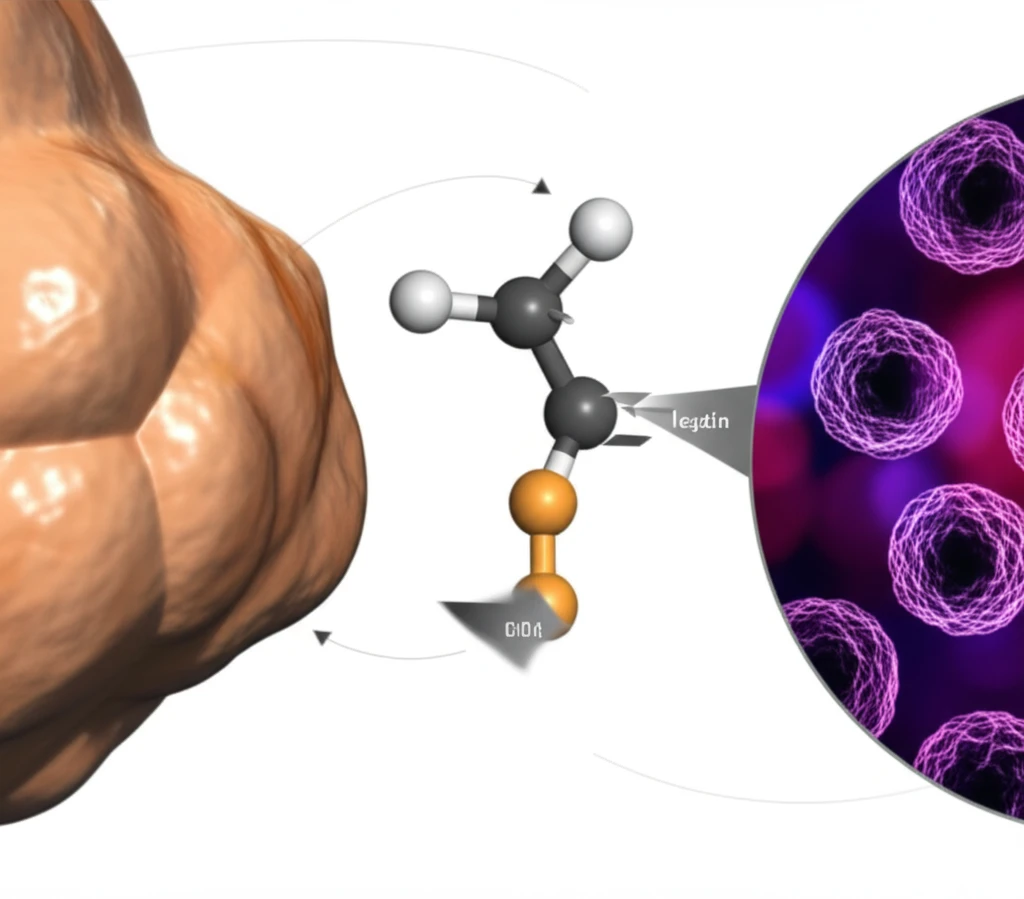
Leptin and Breast Cancer: Unveiling the Connection
"A closer look at how leptin levels may influence breast cancer risk, progression, and potential treatment strategies."
Breast cancer remains a significant health challenge worldwide, especially for postmenopausal women. Obesity, a well-established risk factor, has been linked to increased levels of circulating leptin, a hormone produced by fat tissue. This connection has sparked interest in understanding how leptin might influence breast cancer development and progression.
Recent research has delved into the relationship between leptin and various characteristics of breast cancer, including the tumor's grade, stage, hormone receptor status, and recurrence. By examining a large sample of breast cancer cases, scientists are uncovering potential links between leptin expression and these critical factors.
This article will explore the findings of a recent study that investigated the role of leptin in breast cancer. We will break down the research, discuss its implications, and explore potential avenues for future investigation. Our aim is to provide clear, accessible information for those interested in understanding the complex relationship between obesity, hormones, and breast cancer.
How Does Leptin Affect Breast Cancer?

A comprehensive study involving a large cohort of breast cancer patients and a control group revealed several significant associations between leptin expression and key clinicopathological features of the disease. The researchers used immunohistochemistry, a technique that allows them to visualize the presence and location of specific proteins within tissue samples, to assess leptin staining in both breast cancer and non-cancerous breast tissue.
- Age: Leptin expression varied with age groups.
- Histotype: Different types of breast cancer showed varying levels of leptin expression.
- Grade and Stage: Higher grade and more advanced stages of breast cancer were linked to leptin expression.
- Lymph Node Involvement: Leptin expression was associated with the spread of cancer to lymph nodes.
- Tumor Recurrence: Leptin expression appeared to play a role in cancer recurrence.
- Hormone Receptor Phenotypes: The expression of estrogen receptor (ER), progesterone receptor (PR), and HER2 was related to leptin staining.
What Does This Mean for Breast Cancer?
These findings suggest that leptin could serve as a valuable biomarker for confirming breast cancer diagnosis and predicting prognosis. Its potential to identify type, grade, stage, lymph node involvement, relapse risk, and overall prognosis makes it an important molecule for further research and clinical application. While these results are promising, it's important to remember that this is preliminary research. More studies are needed to fully understand the complex role of leptin in breast cancer and to determine how these findings can be translated into improved treatments and prevention strategies.
